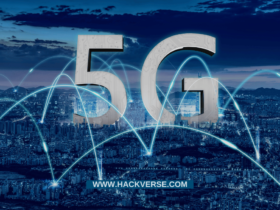Does AI Really Take Jobs, or Does It Create New Opportunities?
The rapid advancements in artificial intelligence (AI) have sparked intense debates about its impact on the job market. While some fear mass unemployment due to automation, others argue that AI can create more jobs and unlock new industries. So, does AI really take jobs, or does it open the door to opportunities? Let’s explore.
What is AI?
Artificial intelligence refers to machines and systems designed to mimic human intelligence. These systems can perform tasks such as learning, problem-solving, decision-making, and even understanding language. At its core, artificial intelligence (AI) is about making machines smart enough to perform tasks that usually require human intelligence. Think of AI as the brain behind tools like:
- Virtual Assistants: Siri, Alexa, or Google Assistant.
- Recommendation Systems: Netflix suggesting what to watch next.
- Automation Tools: Robots assembling cars in factories or algorithms detecting fraud in banking.
AI can process vast amounts of data at lightning speed, making it incredibly efficient for tasks humans find time-consuming. But as AI gets smarter, people often wonder—what does this mean for jobs? Let’s break it down.
Also Read: What is the Internet and Who Owns The Internet?

Why People Fear AI’s Impact on Jobs
Think about the jobs we see every day: cashiers, drivers, factory workers. These roles often involve repetitive tasks—prime candidates for AI automation. For example:
- Self-checkout machines at stores reduce the need for cashiers.
- Delivery drones and self-driving trucks might replace drivers in the future.
Studies show that automation could affect up to 25% of jobs globally by 2030. Understandably, this creates anxiety. No one wants to feel their livelihood is at risk.
But Here’s the Flip Side
Every wave of technological advancement brings disruption, but it also creates new opportunities. Remember when computers were a novelty? People worried back then too, but now we have careers like app developers, cybersecurity experts, and digital marketers—roles that didn’t exist a few decades ago.
With AI, we’re seeing something similar:
- New industries: AI is fueling demand for data scientists, AI specialists, and robotics engineers.
- Enhanced roles: Instead of replacing jobs outright, AI often helps people do their work better—think of AI tools helping doctors diagnose diseases faster or helping teachers personalize learning.
What Jobs Are Safe from AI?
AI is brilliant at crunching data, but it can’t replicate human creativity, empathy, or critical thinking. Jobs that rely on these qualities—like healthcare professionals, educators, artists, and writers—are less likely to be replaced.
For example:
- Doctors: AI can analyze X-rays, but a robot can’t hold your hand during a tough diagnosis.
- Teachers: AI can offer quizzes, but it can’t inspire or mentor the way humans can.
How You Can Stay Ahead
The future of work is about collaboration with AI, not competition. Here’s how you can prepare:
- Upskill regularly: Learn AI basics, coding, or data analytics. Platforms like Coursera or Udemy make this easy.
- Focus on creativity: Develop skills that machines can’t replicate—writing, design, leadership, or innovative thinking.
- Adapt to change: Stay curious and open to new opportunities. Remember, every technological shift has created new paths.
Also Read: What is Bitcoin?
So, Does AI Really Take Jobs?
Yes, AI might replace some roles, but it’s also creating new ones. The key is to adapt and embrace this change. AI isn’t here to make humans obsolete; it’s here to help us work smarter and focus on what we do best.
Instead of fearing the rise of AI, let’s focus on preparing for the opportunities it brings. After all, history shows that progress doesn’t eliminate jobs—it transforms them.
Conclusion
AI is not inherently a job destroyer—it’s a tool that, when used wisely, can enhance productivity and create new opportunities. While it may displace some roles, it also paves the way for innovation and growth in the job market. The real challenge lies in ensuring that individuals and societies are prepared for these changes through education, training, and policy reforms.
What’s your take on AI and jobs? Are you preparing for the AI-driven future? Let’s discuss in the comments below!
Good Bye and Don’t forget to Follow Me On : Twitter , Instagram








Leave a Reply